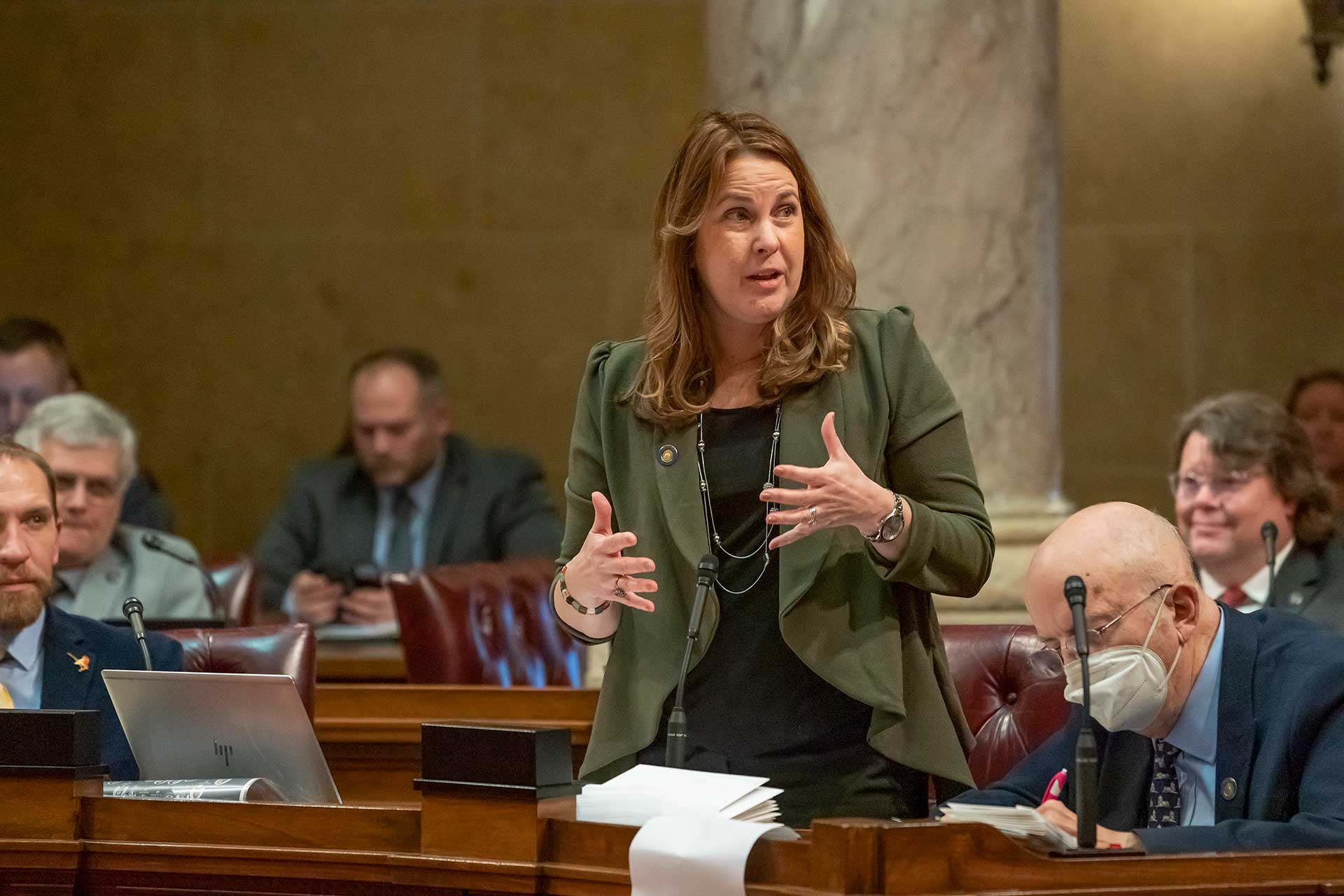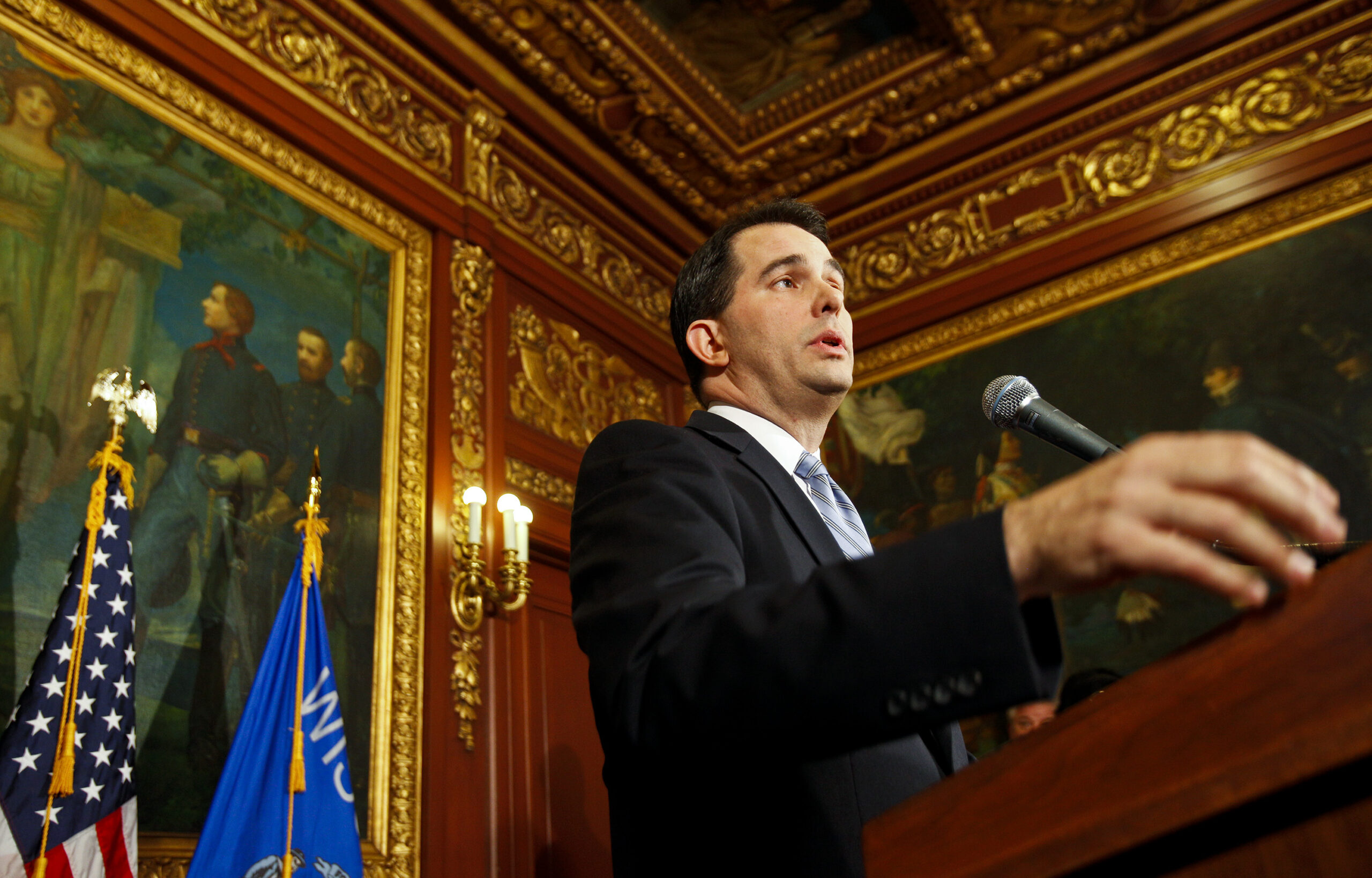Gov. Scott Walker signed 19 bills Monday, including one that spells out who would pick Wisconsin’s delegates to a first-ever “convention of states” to amend the U.S. Constitution.
Earlier this month, the Wisconsin Legislature officially joined the growing number of states calling for an Article V convention to amend the Constitution. While backers say it would be strictly to consider a balanced budget amendment, experts say there would be nothing keeping delegates from proposing other amendments, too.
The bill Walker signed would have Wisconsin appoint nine delegates if such a convention ever happens. The Assembly Speaker and Senate Majority Leader would each appoint three, while the governor and the Legislature’s minority leaders would each appoint one.
Stay informed on the latest news
Sign up for WPR’s email newsletter.
That means that under the current power structure of state government, Republicans would appoint seven out of nine delegates.
At this point, that’s still a hypothetical. Advocates say Wisconsin is the 28th state to join the call for an Article V convention. Thirty-four states are needed.
Combating Homelessness
Walker also signed a bill to bring state agencies together in an effort to fight homelessness.
The state’s new Interagency Council on Homelessness will meet quarterly and report to the governor and Legislature.
Representatives from several agencies will serve on the council, including the Wisconsin Housing and Economic Development Authority, the state Department of Corrections, and the state Department of Health Services.
It’s tasked with establishing a statewide policy to prevent and end homelessness.
Walker also signed another bill that allows for a two-year pilot program aimed at helping chronically homeless people get first priority for housing vouchers.
When the bills went through the Legislature, homeless advocates praised them as positive first steps while Democrats called them Band-Aid solutions for a serious problem.
Still, the bill to create a Council on Homelessness passed the Legislature unanimously and the other received a bipartisan vote.
Homeowners’ Bill of Rights
Another bill Walker signed into law was spawned by a legal fight that went all the way to the United States Supreme Court.
The plan would let property owners sell and use what are known as substandard lots, which are pieces of land that met zoning requirements when they were first parceled off, but don’t any more.
It was backed by the Murr family, which said it wanted to sell some of its land off the St. Croix River, south of Hudson, for years, but can’t because it’s a substandard lot.
The Murr family took its case all the way to the U.S. Supreme Court, where it lost in a 5-3 decision earlier this year.
The “Homeowners’ Bill of Rights” proposal would also make it easier for people to use land for things it isn’t zoned for.
Wisconsin Public Radio, © Copyright 2024, Board of Regents of the University of Wisconsin System and Wisconsin Educational Communications Board.







